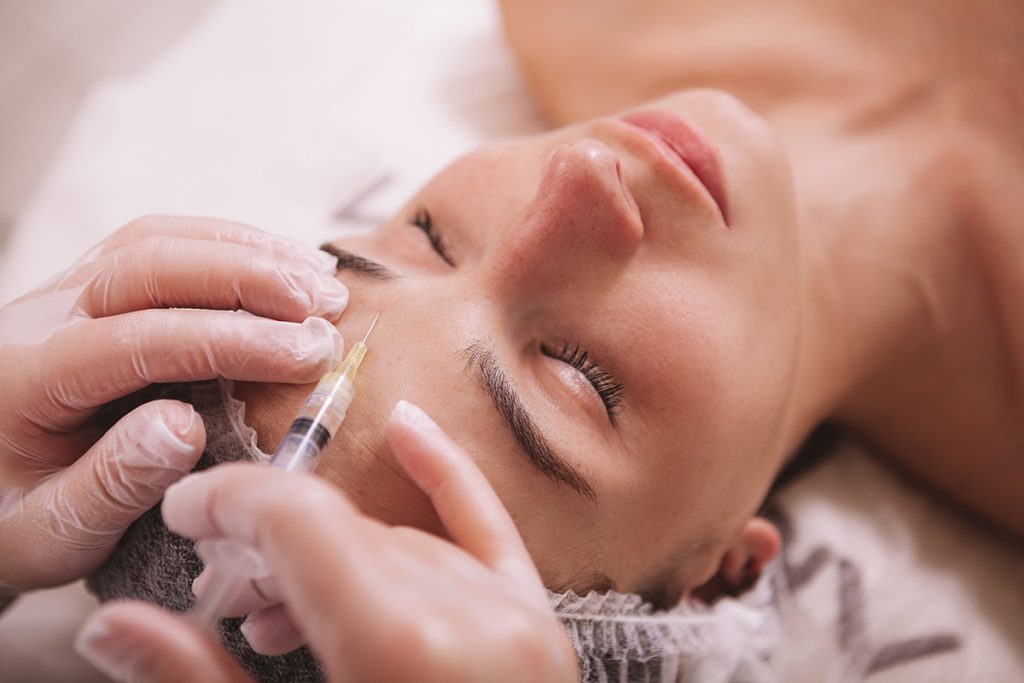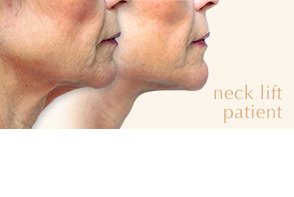Can BOTOX Treat Depression? A New Study Suggests Yes

We call injectable botulinum neurotoxin “BOTOX,” just like we call tissues “Kleenex.” But there are a variety of botulinum neurotoxin formulas that are used to treat wrinkles, chronic headaches, and excessive sweating, among other conditions. And we have new reason to believe this family of injectable neurotoxins may have antidepressant effects.
Here in our Asheville plastic surgery office, I offer patients both BOTOX® and Dysport®—onabotulinumtoxinA and abobotulinumtoxinA, respectively. When injected, both stop nerve signals traveling to the muscle, relieving the tension and wrinkling that show signs of aging. And both of these were among the handful of neurotoxin formulas examined in a new study published in the journal Nature, which looked at the possibility of antidepressant side effects from BOTOX-type injectables.
The “facial feedback hypothesis”: Are the benefits of BOTOX only between the eyebrows?
Past studies about the potential of BOTOX to treat depression hypothesized that the reason it seemed to reduce depression was because, when injected into the glabellar area between the eyes, BOTOX prevents frowning. Because there is evidence that frowning reinforces negative feelings, researchers believed it was possible that depression was reduced by the prevention of frowning—or the “facial feedback hypothesis.”
In recent years, studies have specifically looked into this hypothesis and the effect of BOTOX injection between the eyebrows. These have had mixed results, especially because it is impossible to maintain a double-blind study when the results of BOTOX (or lack thereof) are physically obvious. Based on these findings, it would not be appropriate to prescribe BOTOX for depression, nor should patients receiving BOTOX treatment expect that their mood will improve. But the results were just promising enough to merit further study.
BOTOX may reduce depression—no matter where it’s injected.
Recently, a new study surveyed over 40,000 patients who received a treatment for all the different conditions BOTOX is FDA-approved to treat:
- Patients included in the survey received BOTOX for excessive sweating, chronic migraines, bladder control, muscle spasms, and (of course) facial wrinkles.
- The study compared these patients’ post-treatment reports of adverse effects, like depression, with post-treatment reports from patients with the same conditions who were treated with another therapy besides BOTOX.
- It found that, no matter where the BOTOX was injected or for which condition, it resulted in fewer reports of depression.
This is a very interesting finding: we can no longer assume that the “facial feedback hypothesis” is the reason some BOTOX patients may experience a pleasant mood-boosting side effect. It’s possible, as the study says, that BOTOX “may act through a more complex mechanism.”
How do we know it was the BOTOX?
BOTOX is proven to be an effective treatment for all of the ailments patients were receiving the treatment to fix. Therefore, it is possible that the happiness patients derived from receiving successful treatment of their medical conditions is what created the measurable reduction in reports of depression, versus other physiological mechanisms.
While we can’t be sure how BOTOX reduces depression, multiple studies have suggested that it can. Future studies will help physicians better understand the mechanism by which BOTOX and other neurotoxins may have antidepressant side effects.
Should I talk to my doctor about BOTOX to help with depression?
The FDA has not approved BOTOX as a treatment for depression, and we are likely a few clinical trials away from that potential reality. It is not safe to entrust your mental health treatment to BOTOX; never try to replicate the work of a mental health professional at your plastic surgeon’s office.
If you are interested in BOTOX for other indications, such as wrinkles, it is key to find a skilled injector with a thorough understanding of injectable neurotoxin options and facial anatomy. They will help you envision your desired outcome and give you a realistic sense of what BOTOX can achieve for you. I encourage you to find a board certified plastic surgeon with a demonstrated track record of providing attractive results with injectable neurotoxin.
If you are looking for an experienced BOTOX injector in Asheville, my plastic surgery office would be happy to set up a consultation with you. Call (828) 210-9333 to speak with our office or contact us online to schedule a visit.
Read the full journal article online in Nature »



